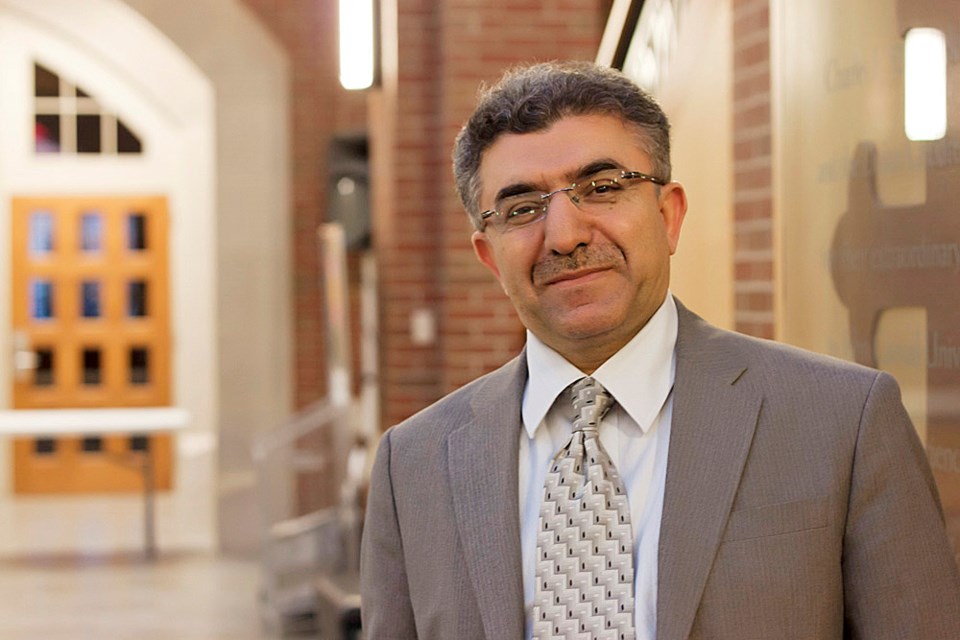Jesus was a Muslim.
Although the Islamic revelation is said to have come from the Prophet Muhammad in the year 610, more than half a millennium after Jesus is said to have lived, Zeki Saritoprak says the Messiah of the Christian tradition is a muslim — with a lower-case “m.”
The word muslim means one who submits himself to the law of God. Although there are no upper and lower cases in Arabic, Saritoprak makes the case that there’s a difference and that Jesus fits the bill. The author of the book Islam’s Jesus was in Vancouver last week, sponsored by the Intercultural Dialogue Institute Vancouver.
I asked Saritoprak, a Turkish scholar who holds a chair in Islamic Studies at John Carroll University in Ohio, if he had received any interesting feedback from Americans around this idea of a Muslim Jesus.
“I think they generally understand what I meant,” he said, adding that to be a small-m muslim is more important than being a capital-m Muslim. The difference, again, is righteous behavior and it is why we often hear Muslims distance their religion from extremists by insisting that the actions of those like ISIS or al-Qaeda do not represent Islam. Some Muslims might not be muslims, he says. It’s “not only the name of it, it’s the meaning of it.”
Islam holds that the Quran is the final revelation, but Muslims also accept the Torah, the Jewish holy scriptures said to have been revealed to Moses; Zabur, known to Christians as the Psalms that are said to have been revealed to David; the Gospel (Injil), which is the foundation of Christianity said to have been revealed by Jesus; and the Quran.
The greatest prophets in Islam are drawn from all of these texts. In Muslim tradition, Saritoprak says, 124,000 prophets came before Muhammad. The highest of these are Noah, Abraham, Moses, Jesus and Muhammad. Jesus, for one, is mentioned more than 90 times in the Quran and in the hadiths, the record of the Prophet Muhammad’s words and deeds. (Muslim commentators generally see Jesus as having been falsely elevated to a position akin to God. The Christian concept of Trinity is emphatically not a part of Islam and is viewed as a rejection of monotheism.)
The idea that the later revelations build on but do not erase the previous ones is not a Muslim invention.
“Jesus did not reject the Torah,” Saritoprak notes.
However, Saritoprak also clarified that Islam views prophets perhaps differently than do Christians.
“In Islam, the term prophet means someone who speaks on behalf of God and receives revelation,” he says. Jesus and the other prophets are not viewed as divine. “In Islam, you cannot worship the prophet. They teach people how to worship God and they are also worshippers of God.”
Like their religious texts, Christians and Jews have a distinct place in Muslim theology, referred to as the “people of the book,” and lauded by Muhammad for their shared belief in a single deity: “O people of the book, come to a common word between us and you: that all of us worship none but God.”
There’s more. What Christians view as the imminent second coming of Jesus is also a prophesy accepted by Muslims. The return of Jesus would be “a sign for the Hour,” according to Islam, meaning the coming end times, the final moment of human history.
In a hadith, Muhammad said that he was the beginning and Jesus was the end, apparently meaning that the message that Islam brought would be realized when the return of Jesus (among other signs) indicates the end of this period and the imminent Day of Judgment.
It may not have been the main message Saritoprak intended his audience to walk away with, but I was struck by his comment that diversity is a challenge deliberately set by God to test the ability of humans to rise above differences.
“If God willed, he would have made you one community,” says the Quran.



